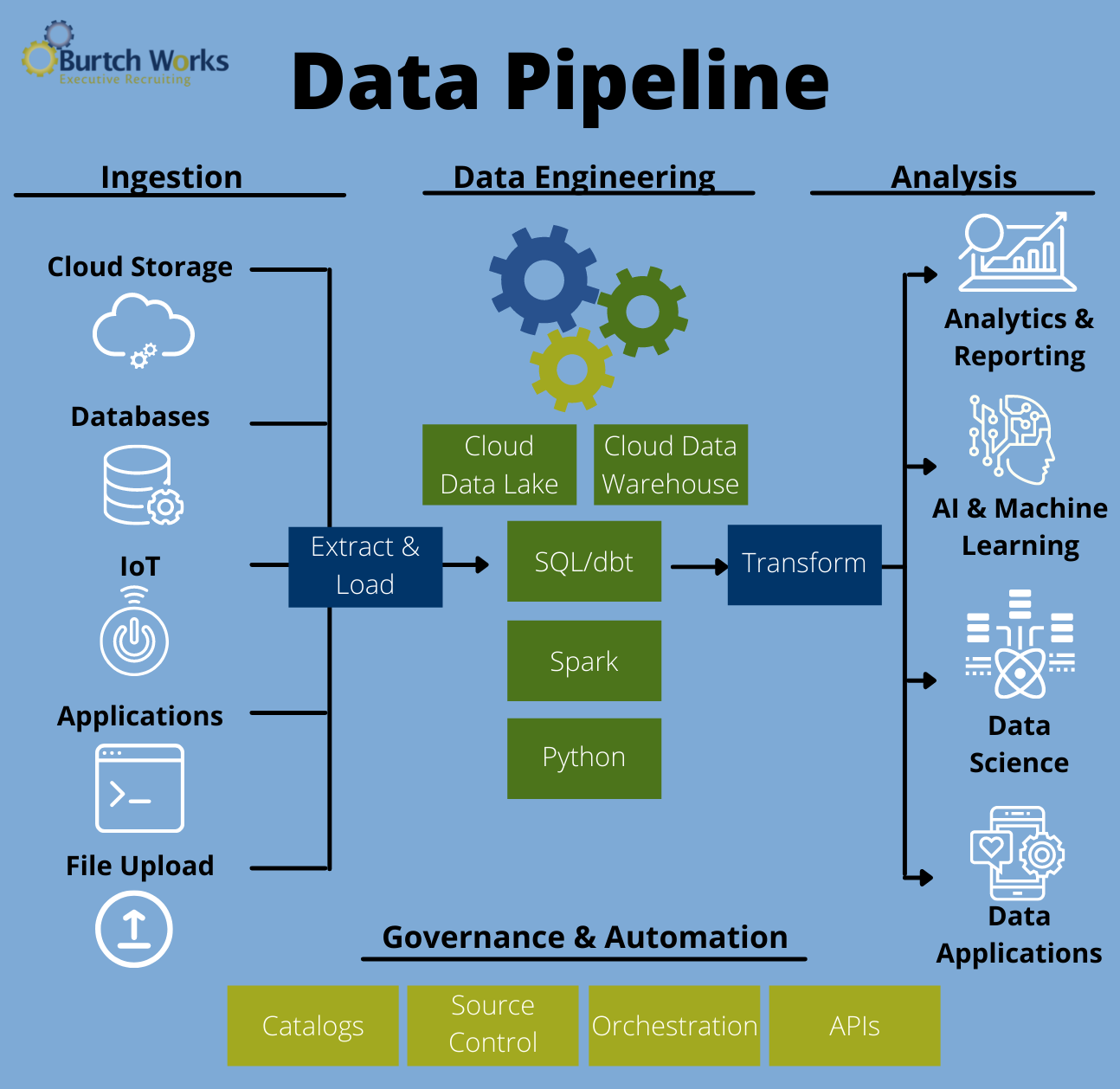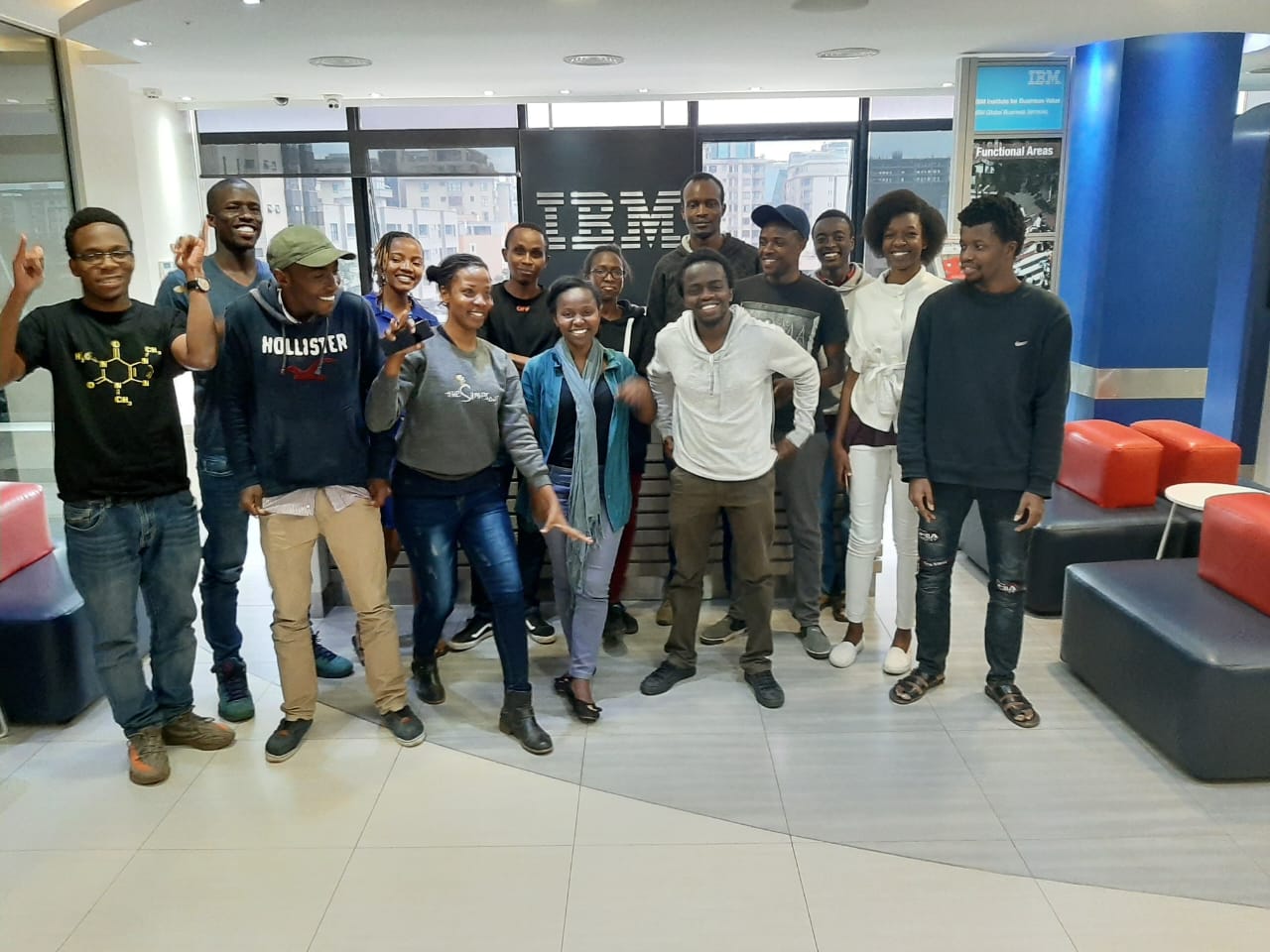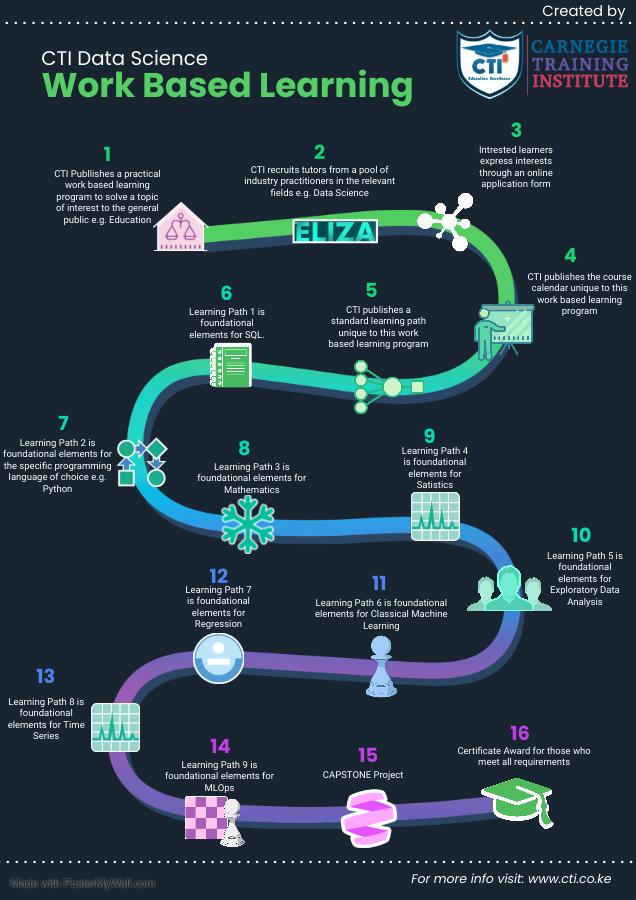- Tel: +254 795 797 328
- hebifa.rafiki@cti.co.ke
- Online AI & Tech Community
Become An Instructor
Become An Instructor

CTI partners with three different stakeholders to run virtual work based learning programs on Artificial Intelligence together with several other short courses. Some of these organizations are:
1. Institutes of higher learning like University of Nairobi - Kisumu Campus
2. Practicing Professionals like Robert Ayub (https://www.ayub.co.ke)
3. Private, Public, NGO's and CBOs like Better Futures for Children (https://betterfutureschildren.org/)
This is to collectively drive the agenda of building AI solutions for consumption by the public for public good. Absolute beginners and Interested students enroll for an open program (3 months or 6 months) and they are taken through a detailed hands-on relevant course curriculumn.
At the end of the program, the students work is published on a portal with links on how the public can consume his/her work. The student may opt thereafter to be absorbed into employment or explore any one of the many self-employment options that may be available from time to time.

In the month of July 2023, a total of 18 learners enrolled for various courses spanning Data Engineering, Analytics, Python and Data Science constituting the first cohort of learners under CTI Work Based Learning Program.
The first cohort learning area to be launched was Education Analytics and runs for a period of six months (July 2023 to December 2023).
Under this learning area, we have learners enrolling for the various learning paths significant to the overal Data Science Learning Path. The learning paths are developed along three distinct learning topics which are:
1. Data Ingestion
2. Data Engineering
3. Data Analysis and Artificial Intelligence
Benefits to Students/Learners

Two different types of articles have been published over the past decade. The first type of article highlights what courses are increasing in demand in the current market and as well as in the future market. The second type of articles are those that highlight which courses are redundant and obsolete.
The problem is actually not about the courses that will become extinct in the coming years, or are less marketable or have little to no job opportunities because the CALL-TO-ACTION on such courses is simple and straight forward - DO NOT APPLY and enroll to any of those courses unless of course you have money and time to throw away.
The biggest problem and challenge is on the admirable, highly marketable and futuristic courses. How do you know which course to take? and most importantly from which institution?
There is a rush to enroll to these courses from institutions that are well known and established without realizing the risk of such a move. Let me put it simple, Learning a current, futuristic, employable course that is on demand by employers from an institution that is still teaching in the old ways with old lecturers who have no technical expertise on the subject, will be the same as placing the engine of a three wheeler (famously known as Tuk-tuk) into the body of a Ferari and expecting the ferari to perform just as efficiently.
Any insitution serious about giving value to learners in respect of the modern courses especially artificial intelligence courses must adopt the new, practical ways of teaching that goes hand-in-hand with the demands of the industry. They must either transform the lecturers or invest in acquiring practicing professionals as lecturers and curriculumn content creators.
The next question is "How then do you identify such institutions"? Simple - The person teaching, what is their background and experience, are they practicing what they are teaching? Have they practiced what they are teaching in the past? Then if your answer to this question is maybe? be prepared to spend double the time and effort getting a job or getting clients as a self employed consultant because after enrolling to such a course from such an institution you will have to unlearn, learn and re-learn several times before you acquire the technical and soft skills needed at job-entry level.

Identify a CTI learning cohort of your interest (A learning cohort is a work based learning program centered on a specific learning area e.g. Education) and enroll to an exciting experience of learning filled with fun.
Using the example of Data Science work based learning program for the Education learning Cohort, the steps are as below:
There are several research areas for students that have been identified as significant to the public. While this list is not conclusive, it will be amended from time to time as learners enroll into the various cohorts as published. The current cohort is on education and majority of these research areas are on matters education and it is from this pool of research areas that learners will select identify a research topic and research question which they will design a problem and publish it for consumption by the public.
Education Research Topics
1. Analyzing Online Education During COVID-19 Epidemic
2. How can Public Health Education reduce air pollution
3. Statistical Analysis of Suicide In Adolescents and Adults
4. Major Factors Influencing College Students' Academic Performance
5. Social Media and How It defines the mental health of Students
6. Evaluation of the Elements Influencing Student Engagement and Retention
7. An examination of Extra-curricula activities on Academic Success
8. Does Parental Involvement Determine Academic Achievement of Kids?
9. Examining how technology affects improving educational performance
10. Factors that motivate students involvement in online learning
11. The impact of Socioeconomic Status on Academic Performance
12. Does Criticism Enhance Student Performance
13. Student Centered Learning and Improvement Performance
14. A cursory look at sudent's career goals and major life decisions
15. Does mental health impact academic achievement
16. Investigations of variables influencing student grades
17. A comparative analysis of different academic fee payments
18. The valid connection between mental health and social media use
19. Different teaching strategies and academic performance
20. Differentiating Elements Affecting Students’ Performance In A Given Subject
21. Key Motivators for Student’s Performance In a Particular Academic Program
22. Unusual Ways to Enhance Student Performance In a Classroom
23. Public and Private School Students: Who Performs Better?
24. Does Getting Involve In a Kid’s Life Make Them Better?
25. How to Engage Different Learning Methods for Effectiveness
26. How High School Students’ Environment Affect Academic Performance
For further inquiries, please contact us through the email address at the top or through the contact form.


